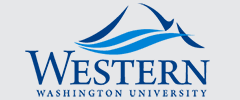Event Title
Embodied Heritage: Enactments of Indigenous Sovereignty
Description
In the contemporary era, Indigenous nationhood exists at multiple scales. It’s most visible and recognized in elected councils that negotiate rights with settler states, but far less visible to the outside world are the dynamic ways of knowing, being and doing that continue to anchor Indigenous sovereignty in place. From the Ts’msyen Nation, I provide examples of feasting, land and waterway protection, repatriation and dance groups to highlight the role that embodied heritage plays in maintaining and reinforcing Ts’msyen law, politics and nationhood.
About the Lecturer:
Dr. Robin Gray is Ts’msyen from Lax Kw’alaams, BC, and Mikisew Cree from Fort Chipewyan, AB. She is an Assistant Professor in the Department of Sociology at the University of Toronto Mississauga. Prior to joining the faculty at U of T, she held a two-year UC President’s Postdoctoral Fellowship at the University of California Santa Cruz and earned her Ph.D. in Socio-cultural Anthropology and a Graduate Certificate in Native American and Indigenous Studies (2015) from the University of Massachusetts Amherst. Her current research focuses on the repatriation of Ts’msyen songs from archives, and foundational issues related to the preservation, management, ownership, access and control of Indigenous cultural heritage. Her book manuscript, tentatively titled Indigenous Repatriation: Law, Property and Nationhood (in progress), analyzes the colonial power dynamics engendered by the transformation of Indigenous cultural heritage into the property of people, states and institutions unrelated to the source community.
Document Type
Event
Start Date
10-10-2018 12:00 PM
End Date
10-10-2018 1:20 PM
Location
Fairhaven College Auditorium
Resource Type
Moving image
Duration
1:08:37
Title of Series
World Issues Forum
Genre/Form
lectures
Contributing Repository
Fairhaven College of Interdisciplinary Studies
Subjects – Topical (LCSH)
Indigenous peoples; Indians of North America; Conservation of natural resources
Geographic Coverage
North America
Type
Moving Image
Keywords
Indigenous sovereignty, Ts’msyen Nation, Repatriation, Embodied heritage
Rights
This resource is displayed for educational purposes only and may be subject to U.S. and international copyright laws.
Language
English
Format
video/mp4
Embodied Heritage: Enactments of Indigenous Sovereignty
Fairhaven College Auditorium
In the contemporary era, Indigenous nationhood exists at multiple scales. It’s most visible and recognized in elected councils that negotiate rights with settler states, but far less visible to the outside world are the dynamic ways of knowing, being and doing that continue to anchor Indigenous sovereignty in place. From the Ts’msyen Nation, I provide examples of feasting, land and waterway protection, repatriation and dance groups to highlight the role that embodied heritage plays in maintaining and reinforcing Ts’msyen law, politics and nationhood.
About the Lecturer:
Dr. Robin Gray is Ts’msyen from Lax Kw’alaams, BC, and Mikisew Cree from Fort Chipewyan, AB. She is an Assistant Professor in the Department of Sociology at the University of Toronto Mississauga. Prior to joining the faculty at U of T, she held a two-year UC President’s Postdoctoral Fellowship at the University of California Santa Cruz and earned her Ph.D. in Socio-cultural Anthropology and a Graduate Certificate in Native American and Indigenous Studies (2015) from the University of Massachusetts Amherst. Her current research focuses on the repatriation of Ts’msyen songs from archives, and foundational issues related to the preservation, management, ownership, access and control of Indigenous cultural heritage. Her book manuscript, tentatively titled Indigenous Repatriation: Law, Property and Nationhood (in progress), analyzes the colonial power dynamics engendered by the transformation of Indigenous cultural heritage into the property of people, states and institutions unrelated to the source community.

